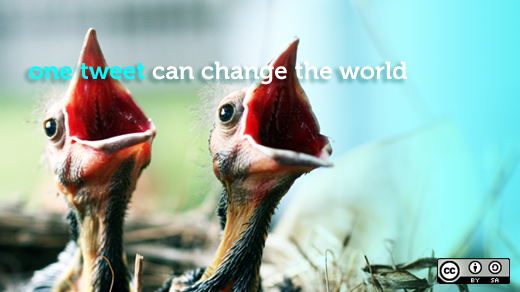Designing Active Learning
What is learning?
Activity: Think about the last time you learned something. Describe what you learned? How did you go about learning it? What strategies did you use? Consider this overview of categories of learning “suitable for instructional design planning“ in the table
My learning activity, to use Twitter purposefully.
I learned about Twitter some years back, but didn’t feel the need to sign up until I attended a conference last year where they really promoted the value of Twitter for live participation during the events (think).
I needed something tangible to convince myself of the need to Tweet. The conference gave me a purpose. I signed up for a Twitter account, for work purposes only (IIa, III) (plan). I think I made two Tweets during the events (do) and observed people face down in their phones rather than facing the speaker (which was weird for me) (IV) (observe). I also sough out people and groups of interest to ‘follow’, my motivation here was ‘is what they were Tweeting of genuine interest or value to me’? (IIa, IIb, III) (think).
So knowing why I want to, need to share my thoughts, ideas, instantly with the world via Twitter (Ia) was my first challenge in learning the technology. Knowing what Twitter is, what it isn’t, the benefits and limitations are and how to develop protect my personal and professional reputation are also key (IV) (observe, think, plan).
I recently created an embed code so my tweets and those of ocTEL appear in my blog page (IIb) (do), I also added instructions in my Bb course environment for those colleague who want to embed Twitter into their courses (II) (do).
I recently posted several tweets, because there was a button on the page I was on, not because I really felt it was valuable to share my activities with others (do). Although I am happy to share my thoughts with those I now and trust within my personal and professional circles, I have yet to overcome my anxieties about Tweeting, warts and all (IV) (think). I admit that I am periodically Tweeting during this ocTEL course, but don’t prioritise my time to follow all the tweets of those I follow or seek out new tweets (IV) (do, observe, think, plan). Having said that when I do get round to logging in to Twitter I always find something to visit from those I follow (do).
I am confident and comfortable in explaining the value and terminology of Twitter to colleagues, I appreciate the value in a technology like Twitter for sharing thoughts, ideas, links etc to others. I will continue to reflect on ‘why I follow the tweets of others’, ‘why I Tweet’ and seriously would anyone really miss it if I didn’t! and continue to develop my ‘Twitter Literacy’ .
Key: A small typology of learning types
I attempted to fit my reflection on learning within the typology of learning types identified as “suitable for instructional design planning” but found I was drawn more to David Kolb’s learning styles model and experiential learning theory (ELT) http://www.learning-theories.com/experiential-learning-kolb.html it is more fluid and feels less hierarchical.
Image : http://www.businessballs.com/images/kolb’s_learning_styles_businessballs.jpg

